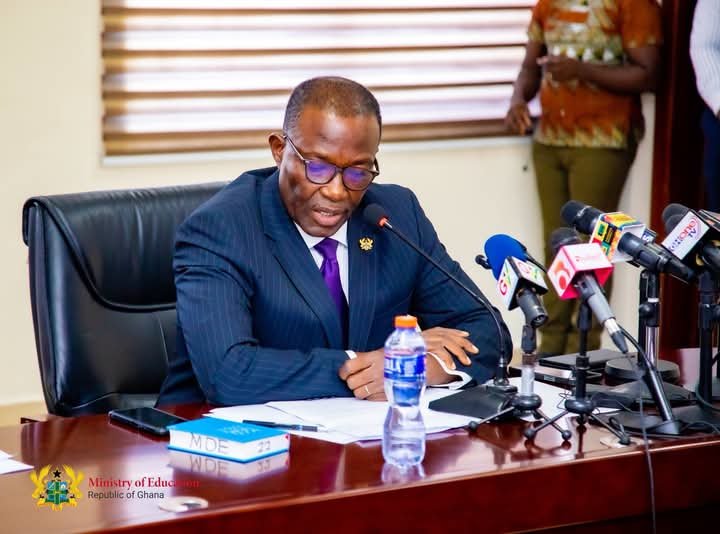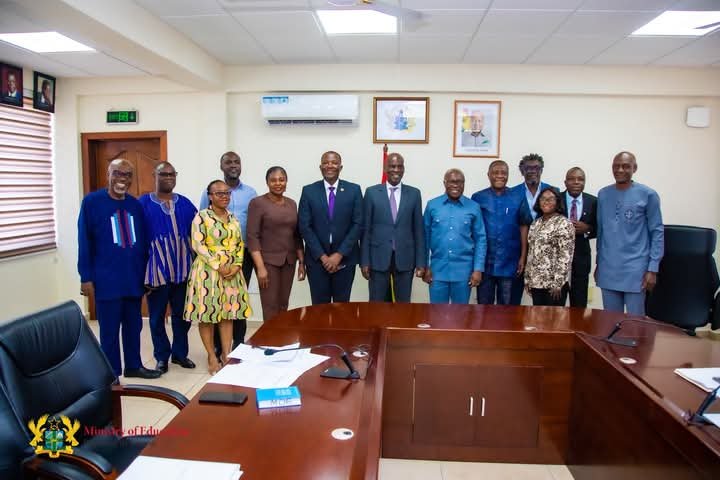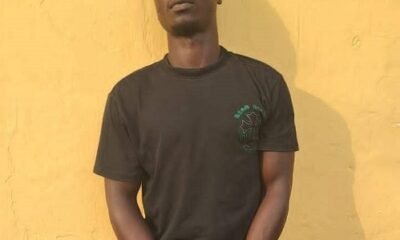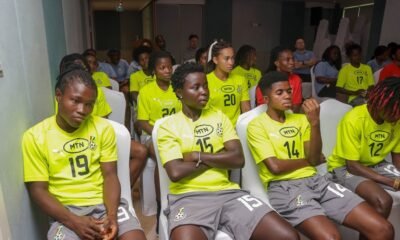News
Sebastian Deh appointed Chairman of Ghana TVET Governing Council

The Member of Parliament (MP) for Kpando, Mr Sebastian Deh, has been appointed Chairman of the Governing Council of the Ghana Technical and Vocational Training Education (TVET).
The Minister for Education, Mr Haruna Iddrisu, who inaugurated the Council, charged members to work hard in order to position TVET as a vital component of Ghana’s education system.
He said Ghanaians were looking forward to deriving the immense benefits that TVET entailed hence they should not be disappointed.
The appointment of Mr Deh has been considered appropriate since he had helped in establishing the foundation of TVET reforms in the country.
A former Executive Director and Chief Executive Officer (CEO) of the Council for Technical and Vocational Education and Training (COTVET), Mr Deh had instituted major polices and institutional reforms that had reshaped the technical education sector in Ghana.
Under his leadership, the country adopted the Competency-Based Training (CBT) in public institutions, introduced the National TVET Qualifications Framework, and launched the Skills Development Fund, through which more than 60,000 young people were equipped with skills training tailored to industry demands.
These interventions have significantly improved the relevance, quality, and employability focus of TVET programmes throughout the country.
He was instrumental in promoting market-driven training models by introducing modular short courses— like solar PV installation, ICT device servicing, and automotive diagnostics—all of which have provided young people with quick access to income-generating opportunities, while maintaining national certification standards.
At the Kpando Technical Institute (Kpantech), the MP has introduced specialised training programmes in Electronics and ICT, which continues to empower young people with hands-on skills.
At the Sovie Technical School, he has helped in equipping the ICT laboratory and facilitated scholarships for 90 female students in Electronics. These efforts, along with his broader developmental interventions— including the provision of boreholes, clinic facilities, and libraries —demonstrate his commitment to both educational transformation and local development.
Mr Deh in a speech said the inauguration of the Council marked a significant part in Ghana’s TVET reforms and demonstrates government’s commitment to developing a skilled workforce to meet the demands of the country’s growing economy.
He assured the Minister that the Council would work hard to deliver on its mandate, by leveraging the quality expertise of its members.
By Spectator Reporter
News
Man sentenced to 25 years for robbery at Manso Akwasiso

A 30-year-old man has been sentenced to 25 years imprisonment with hard labour by the Bekwai Circuit Court for his role in a 2022 robbery at a mining site at Manso Akwasiso in the Ashanti South Region.
The convict, Dominic Ofori, also known as Fanta, was arrested on 16th February 2026 after years on the run. He pleaded guilty before the Bekwai Circuit Court to robbery contrary to Section 149 of the Criminal Offences Act, 1960 Act 29, and was accordingly sentenced to 25 years imprisonment with hard labour.
On March 20, 2022, the Manso Adubia District Police received intelligence that a group of armed men from Manso Abodom were planning to attack a mining site at Manso Akwasiso to rob the owner of gold concentrate. Acting on the information, police mounted a coordinated operation and laid an ambush at the site.
At about 5:30 pm the same day, four-armed men arrived at the site, fired indiscriminately, and robbed the miners of their gold concentrate. The police team on surveillance intervened, resulting in an exchange of gunfire.
Three of the suspects, Abu Abubakar, Musah Latif, and Gideon Takyi, sustained gunshot wounds and were pronounced dead on arrival at St Martins Catholic Hospital at Agroyesum. Dominic Ofori escaped at the time but was later arrested and put before the court.
The Ashanti South Regional Police Command has assured the public of its continued commitment to combating violent crimes and bringing offenders to justice.
News
Ashanti police arrest man for publishing false news on TikTok

The Ashanti Regional Police Command has arrested 45-year-old Isaac Boafo, also known as “Duabo King,” for allegedly publishing false news intended to cause fear and panic.
Police said the arrest follows a viral TikTok video in which Boafo claimed that four officers at the Central Police Station in Kumasi engaged in inappropriate conduct with commercial sex workers during night patrols in Asafo.
Officers from the Police Intelligence Directorate (Ashanti Region) apprehended Boafo after receiving intelligence about the video.
During questioning, he admitted to creating the video to attract views and engagement online, and acknowledged that he could not prove the allegations.
Boafo also admitted making comments about the President of the Republic for content purposes and could not defend those statements.
He has been formally charged and is in detention as investigations continue.
The Ashanti Regional Police have warned the public against publishing or sharing false information on social media, noting that such acts can cause fear, panic, and damage reputations.
They said anyone found engaging in similar conduct will face legal action.
By: Jacob Aggrey














